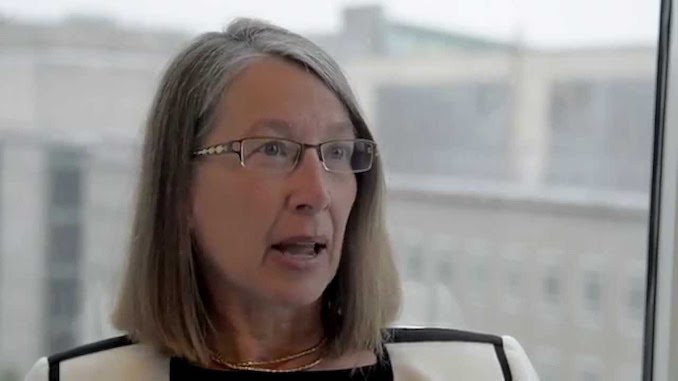Pushback of the Week, April 6, 2025
The Citizens’ Council for Health Freedom (CCHF), a Minnesota-based national nonprofit policy organization co-founded by Twila Brase, has been a leading voice for freedom for over 25 years. CCHF monitors Congress and state legislatures and testifies on proposed legislation.
In several recent appearances on Financial Rebellion, Brase has provided excellent insights on the control grid and why the REAL ID—which amounts to a national digital ID—poses such a grave threat to freedom.
Alongside the marketing of the REAL ID, there is also a state-by-state push to enact mobile driver’s license (MDL) legislation that makes a digital driver’s license—stored on a smartphone Apple or Google Wallet—the legal equivalent of a physical hard-copy license. At least 15 states already have MDL programs. The American Association of Motor Vehicle Administrators (AAMVA)—a trade association that develops and promotes “model programs” related to motor vehicle administration and law enforcement—is spearheading the push for MDLs and describes one of its goals as “uniformity” across all states.
Minnesota’s Democratic-Farmer-Labor (DFL) Party (affiliated with the national Democratic Party) just tried unsuccessfully to pass House File 1335 (HF 1335), which would have authorized electronic drivers’ licenses and related rulemaking. Proponents deployed the usual marketing flimflam, selling the bill as a way to help the state “get up to this century,” “modernize,” and “innovate.”
In his highly effective testimony (timestamp 1:09:20) at a March 26 House Transportation Committee hearing, CCHF’s Legislative and Policy Director, Matt Flanders, calmly decimated the “convenience” and “modernization” arguments, explaining that “any shift toward digital IDs significantly expands government power over individual lives…and threatens personal privacy, security, and autonomy” due to a digital ID’s cataloging of a person’s “behavior patterns, personal decisions, locations, and actions” and its potential to create a “no-card-no-care” health care system.
Also noting that “he who holds the data makes the rules,” Flanders quoted the AAMVA to show that while the trade group promotes MDLs as “voluntary,” the long-term vision is for digital IDs to become the only option. AAMVA states, “While AAMVA anticipates the MDL will eventually be used as a singular identity credential, we recognize for the immediate future, both the physical card and the MDL must coexist.”
Flanders’ testimony raised several additional pointed questions:
- “What happens if the AAMVA standards change to require digital IDs?”
- “What if AAMVA decides as part of the licensing process that states should collect additional biometric data…?”
- “If a digital license can be remotely accessed…would it not also leave an individual vulnerable to criminals or hackers…?”
Due to opposition by Republicans, including the Committee chair, the Transportation Committee tabled the bill instead of forwarding it on to the Judiciary Committee, where it would also have had to pass. Having failed to make it through the requisite committees in either the House or Senate, the bill is dead. We congratulate CCHF on this victory.
We are grateful for the efforts by Brase, Flanders, and CCHF to educate the public and state legislators on the control grid dangers of the REAL ID and MDLs. We encourage our subscribers to do their part—see our March 31 Action of the Week for suggestions!
Related at Solari
Action of the Week: March 31, 2025: Take Action in Your State on Hot-Topic Bills
Real ID Real Enforcement (Financial Rebellion)
Control Grid 101 – See It to Avoid It! (Financial Rebellion)
Reject Real ID, Avoid QR Codes (Financial Rebellion)




